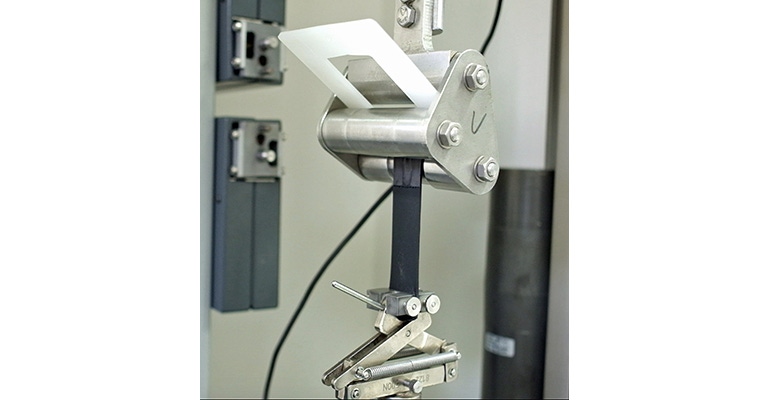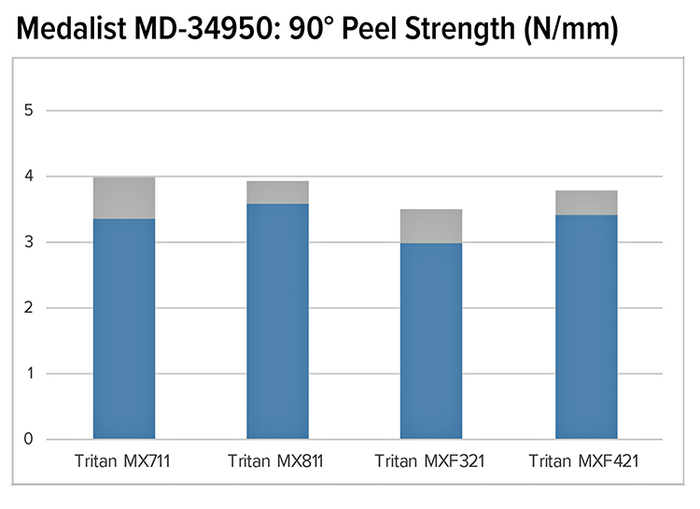Over-molding TPEs onto copolyester offers medical device designers a combination of hard and soft materials that are advantageous in medical components.
June 25, 2021

Tests conducted to determine the bonding performance of medical-grade thermoplastic elastomers (TPEs) from Teknor Apex with a clear copolyester substrate developed by Eastman Chemical showed a combination of high peel strength and adhesive failures. These properties are advantageous in over-molded applications, said Teknor Apex.
In 90° peel tests of test specimens produced in a two-shot molding process, three Medalist medical-grade TPEs provided durable bonds to four of Eastman’s Tritan copolyesters. Formulated to adhere to copolyester and other engineering thermoplastics, the Medalist compounds exhibited high levels of peel strength. The tests showing high peel strengths with adhesive failures demonstrate excellent Tritan TPE over-molding performance, said Teknor Apex.
The bond strength between Medalist TPEs and Tritan exhibited very little loss, even after soaking test samples for 48 hours in disinfecting chemicals, including a 70% isopropyl alcohol, Clorox bleach, and a 20% intralipid solution, a fat emulsion that is used as an intravenously administered nutrient.
Medalist compounds MD-34940, MD-34950, and MD-34959 with Shore A durometers of 42, 50, and 59, respectively, were tested. Tritan grades MX711, MX811, MXF321, and MXF421 provided a good range of physical properties. All three Medalist compounds in combination with all four Tritan resins showed little loss of bond strength after chemical exposure.
|
Peel-strength test results for Medalist TPE over-molded onto four Tritan substrates. Blue shows average peel strength; peak peel strength is indicated in gray. |
Over-molding TPEs onto copolyester offers medical device designers a combination of hard and soft materials that are advantageous in medical components, said Teknor Apex. Soft TPEs are desirable for grips, gaskets, seals, and soft-touch elements on rigid medical housings and other components.
“By combining Medalist TPEs and Tritan copolyesters, manufacturers can improve the ergonomics, aesthetics, or functionality of medical devices,” said Dr. Yubiao Liu, Global Medical Technical Platform Lead, Eastman. “The combination of soft TPEs with rigid copolyester substrates can enhance grip, add texture or comfort, yield a tight seal, or provide damping characteristics.”
Medalist TPEs combine the performance of thermoset rubber with the processing ease of thermoplastics, making them superior alternatives to silicones, PVC, and TPUs, added Ross van Royen, Senior Market Manager for Teknor Apex. “We have developed Medalist TPEs to meet the most stringent requirements of the healthcare industry and produce them in multiple ISO 13485–certified facilities with only FDA-listed food-grade ingredients. All grades are biocompatible in accordance with ISO-10993-5, are RoHS and REACH SVHC compliant, and contain no phthalates, latex proteins, or BPA.”
About the Author(s)
You May Also Like



